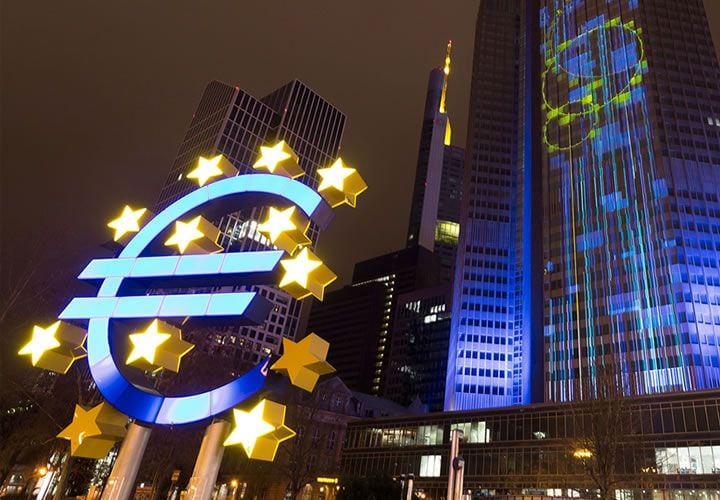The European Central Bank's March Policy Meeting and the Euro

The ECB is unlikely to change rates at its policy meeting on Thursday, March 9, nor is its stance expected to radically shift either.
This indicates a possible lack of effect on the Euro's exchange rate, however, the way the statement and Draghi's press conferences afterwards are nuanced could still provide some volatility for Euro pairs.
Politics Trumps All
The continued threat to the Eurozone from far-right parties is about to reach a crescendo with the French presidential and the Dutch general election, and with the anti-EU candidates both faring well in opinion polls, the ECB is likely to remain especially cautious until after the results.
Indeed, the impact of politics on the Euro cannot be overestimated: today’s strong GDP figures, for example, though showing a 0.4% rise in Q4, failed to have an impact on the exchange rate, which has been put down to traders remaining cautious ahead of these elections.
Although headline inflation has been rising, a very broad consensus exists amongst analysts that stubbornly low core inflation, which does not have volatile fuel and food inputs, will further prevent the ECB from adopting a more hawkish attitude.
Nevertheless, Nordea’s Tuulio Kuivo says that there is a risk of a more aggressively hawkish tone creeping in at the March meeting.
“Given the low core inflation numbers, the ECB’s current monetary policy stance seems appropriate and we do not expect any material changes in March. From the current levels, financial markets are more vulnerable to a hawkish than a dovish tilt,” said the Nordea analyst.
It is not expected to begin winding down its QE programme, for example, until the summer, according to the earliest analyst’s estimates.
Danske Bank’s preview also illustrates the point about core inflation remaining too low but unlike Nordea they see more chance of a dovish rather than a hawkish ‘tilt’.
“We expect the ECB to maintain its dovish stance at the meeting this week although inflation has reached the 2% target.
“The reason why we do not expect the ECB to react to the stronger inflation figure is that it is driven by the volatile energy and unprocessed food price inflation, whereas the underlying price pressure remains weak.
“The ECB has said it will not change its monetary policy based on such a rise in inflation and in the introductory statement from the latest ECB meeting it was communicated that 'the Governing Council will continue to look through changes in HICP inflation if judged to be transient and to have no implication for the medium-term outlook for price stability’,” said Danske.
Bank of America’s Gilles Moec meanwhile says he thinks Draghi’s dovish performance at the previous meeting represented a “truce” between the doves and the hawks.
It seems even the Hawk’s, such as Wiedmann are taking a softer line, and are not as keen to wrap up QE as they previously were.
“Jens Weidmann in his recent public statements came out as quite relaxed on inflation. He also called the current stance "appropriate". Uber-hawk Hansson stated unambiguously that the central bank needs several months of data before embarking on further decisions. We thus expect a bland/dovish press conference this week.”Moec sees a chance of a change in the wording of
Moec sees a chance of a change in the wording of statement, asking whether the statement on rates staying "at current levels or lower" will be maintained?
He further asks whether the ECB’s long-term refinancing operations, or TLTROs, as they are known technically, designed to repair bank balance sheets and liquidity, will also be ramped up.
Any mention of the QE programme ending or being tapered, of course, will provide Euro bulls with a reason to start buying and the currency is likely to rise.




